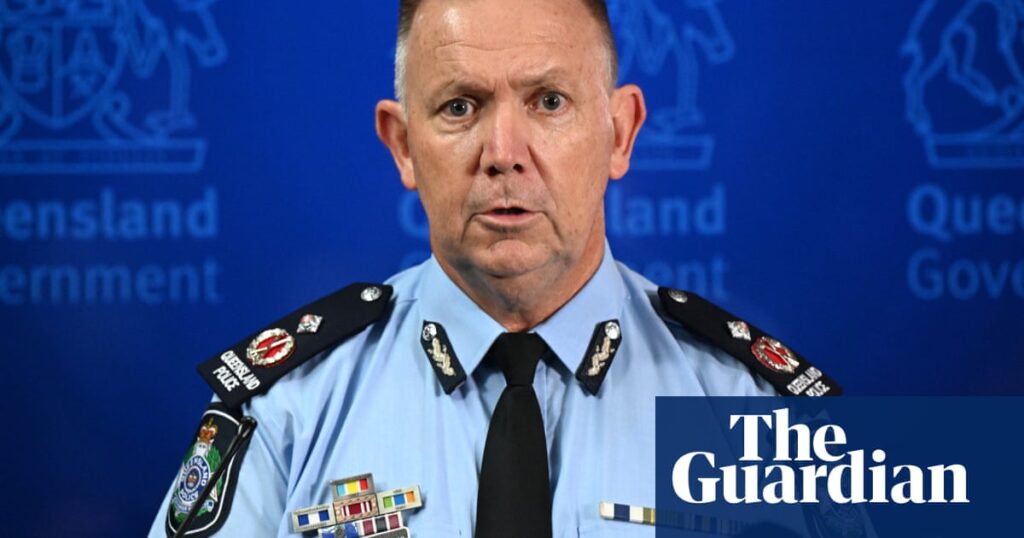
Domestic violence case management is not considered the “core business” of policing, according to Queensland’s acting police commissioner, Shane Chelepy. This statement came as the Queensland Police Service released a comprehensive 100-day review of its operations, highlighting the increasing burden of non-core functions on police officers.
The review, unveiled on Tuesday, identifies a phenomenon known as “mission creep,” where officers are increasingly tasked with responsibilities such as mental health response, domestic and family violence case management, and prisoner transport. Chelepy emphasized that while addressing societal issues is crucial, police officers are not adequately trained for these roles.
Changing Role of Policing
At a press conference preceding the report’s release, Chelepy remarked on the evolving role of policing in addressing societal issues. “If you look at domestic and family violence and mental health issues and other social issues, our role of policing has expanded into those societal and social issues. What this report says is that’s very important, but police are not the ones who are trained to do that,” he stated.
The report recommends transitioning some domestic and family violence (DFV) responsibilities back to the Department of Families, Seniors, Disability Services and Child Safety, as well as appropriately funded non-governmental organizations (NGOs). This recommendation aligns with recent legislative changes, such as the banning of coercive control, which underscore the seriousness of domestic violence as a crime.
Community Expectations and Challenges
Nadia Bromley, CEO of Women’s Legal Service, highlighted the community’s expectations for police to be the frontline responders to violent crime. “We know that domestic violence makes up a significant amount of the violent crime committed in Queensland,” Bromley noted. “Most Queenslanders would expect the police service to be the frontline response to violent crime.”
Chelepy acknowledged the need for police to better define their role boundaries, stating that police would still respond to callouts but would seek clearer referral processes to other agencies once their immediate safety duties were fulfilled. He advocated for greater involvement of “wraparound services” to reduce repeat service calls.
“The reality is, police are there to do policing. We’re there to keep the community safe … there’s a time in that response where the best support to be provided to the member of the public is through a specialist of another organization, not a police officer.”
Statistics and Resource Allocation
The report reveals that calls for service related to domestic violence are the largest source of demand, accounting for 34% of hours in the computer-aided dispatch system. In certain districts, this figure can soar to 70%. Bromley expressed concern that few domestic violence services operate during weekends or early mornings, emphasizing the need for 24/7 availability to ensure safety.
“If the work is transferred to organizations that aren’t available when they’re needed, that will compromise the safety of Queenslanders. The response needs to be 24/7 and unless the agency responsible for responding to domestic violence is available then, people won’t get the safety they need. They won’t get the immediate response,” she said.
Legislative and Structural Changes
Queensland’s police minister, Dan Purdie, a former police officer himself, expressed support for reallocating resources to focus on crime detection and prevention. “I look forward to working with the other ministers and those departments through cabinet, and likewise, to build better systems to help our police refocus their attention on fighting crime,” Purdie stated. “We need to build that capacity.”
The government has introduced legislation aimed at reducing the paperwork burden on police responding to domestic violence incidents. If passed, the laws would allow police to issue on-the-spot orders to alleged domestic violence offenders, a proposal that has raised concerns among some experts about potential risks to vulnerable women.
The report, which includes 65 recommendations, also suggests reducing the size of the police executive leadership team and the senior executive. Chelepy assured that no jobs would be lost in the restructuring process.
Queensland police’s commissioned officers’ union president, Kerry Johnson, and police union president, Shane Prior, welcomed the report’s findings. Prior called for the Department of Health to take a more active role in addressing mental health issues, stating, “Things have got to change.”







